Prior to becoming editor-in-chief of SOLRAD, I ran a comics criticism (among other things) site called Your Chicken Enemy. On that site, I did a capsule review column called Books in Bites that featured books that I was reading. I’ve brought it back and given it a new home on SOLRAD. Here’s installment 25!
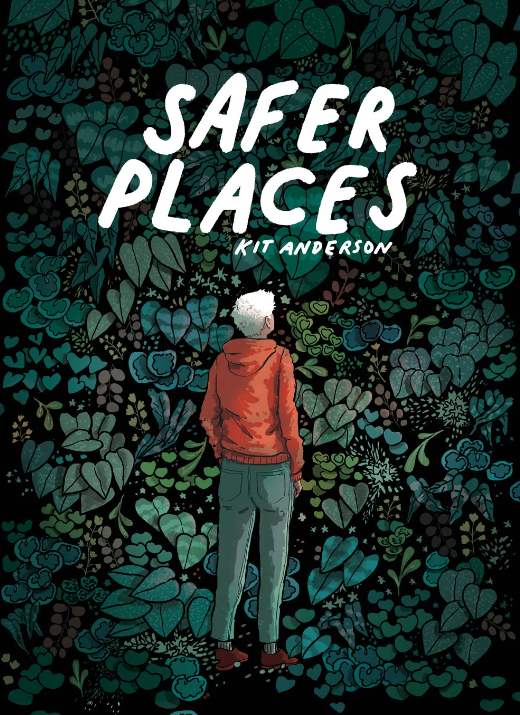
By Kit Anderson
Published by Avery Hill
Is memory a liminal space? The recollections of yesterday are clouded by the reflections of today. The past reverberates with the echoes of the present. That which we come to hold true is, ultimately, a morphed remembrance.
Did I really feel that exhilaration upon seeing a weighted orange sunset while riding in the bed of my friend’s pickup as we careened through the hills of San Francisco in the early 90s? Or is this a story I tell myself to avoid confronting who I was and how out-of-control everything was at that time? Where does reality lie? Or is that the simple truth of the matter; reality lies?
Kit Anderson’s Safer Places, “a new collection of stories about isolation, memory, and every day wonders” (as it says on the back cover blurb) doesn’t confront these questions head-on but, rather, inspires the reader to seek answers. Anderson interweaves 21 separate stories that echo each other through the use of similar tropes and particular narrative conceits. This book is an exploration of how we use the past to understand the present, how we understand experience through the stories we tell ourselves, and how we make sense of our emotions now by relying on what we hope the past has taught us.
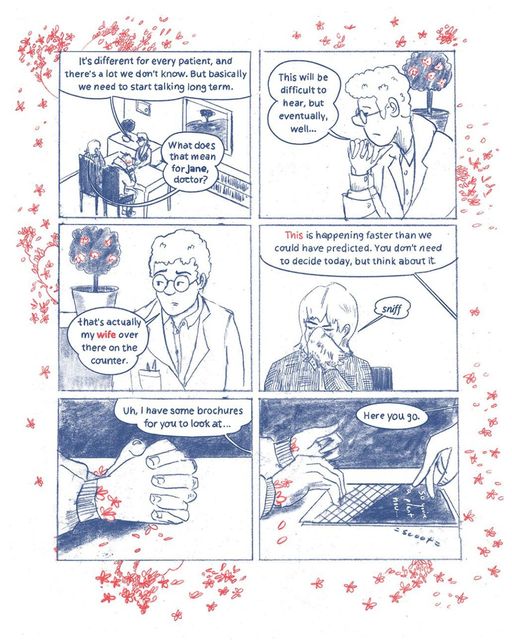
What is hope other than our ability to reimagine both where we have been and where we are going? Will there always be a “Safer Place” or is this just a lie we tell ourselves to move forward in our lives? Again, Anderson offers no answers in this book, but she does suggest to her readers that questions such as these are an integral part of understanding who we are.
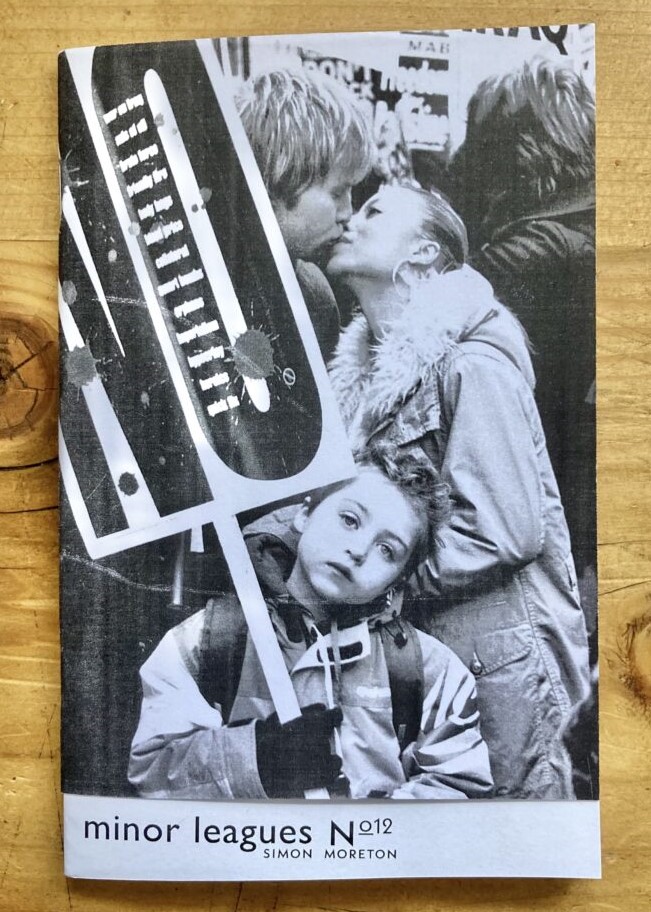
By Simon Moreton
Published by Lydstep Lettuce
Hey. I realize you are reading SOLRAD, the Eisner-Nominated Online Literary Magazine for Comics, which means that what we feature here should be… well… words about comics. Simon Moreton’s Minor Leagues No. 12 is not a comic. It is a zine in the truest definition of the term. But Moreton is a cartoonist. In fact, I maintain that some of his books are in the running for the best comics of all time. So I feel fine talking about his latest work on SOLRAD.
Don’t @ me, bro.
“This is the first issue of my ongoing zine series about everyday life since July 2021…” writes Simon Moreton, and by “everyday life”, Moreton means just that. Through poetry, prose, drawing, collage, and photos, Moreton documents his observations, recollections, and understandings of the day-to-day and the world at large. In this act, he is making a record of himself, communicating his entirety, providing insight into himself, and connecting with a shared humanity. Moreton continues to evolve as an idiosyncratic artist. Part Ralph Waldo Emerson, part John Locke, part Lao Tzu, part John Porcellino, Moreton understands that we are all part of a greater whole while also being a particularly unique buzzing bee in the greater flower garden of humanity.
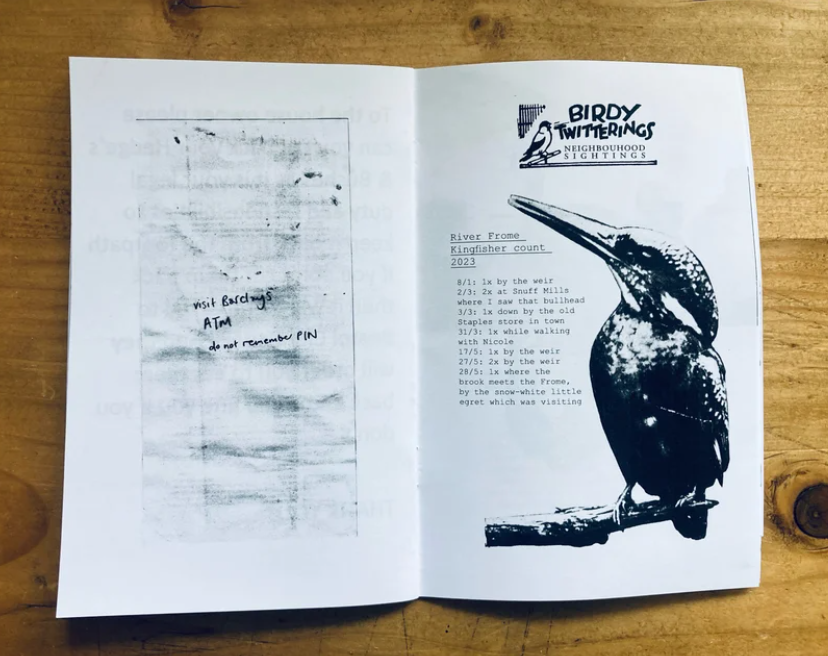
Each page of Minor Leagues No. 12 features fundamentally different and often incongruous elements. What ties it all together is that ultimately it, and the entire Minor League series, is a catalog of what it is to be Simon Moreton. And there is a chance that, by understanding what it is to be Simon Moreton, we have the opportunity to understand ourselves as well.
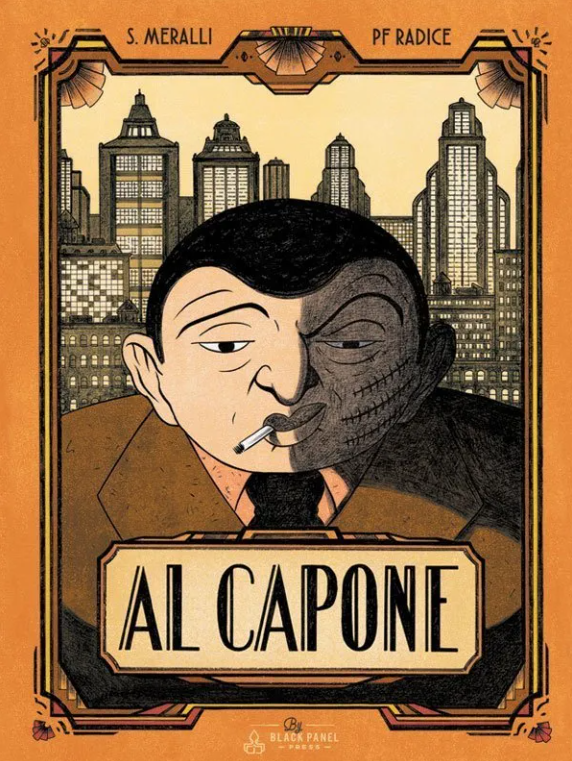
By S. Meralli and PF Radice
Published by Black Panel Press
We convince ourselves that the decisions we make are right or good. Or, at least, it seemed like it at the time? Some of us concoct heroic narratives through a type of mental gymnastics that would put Simone Biles to shame. Still, we justify our actions through our own moral compass and we can tell that story with the certainty of our righteousness. We are all the best unreliable narrators of our own stories.
But, what if the unreliable narrator is just really an evil fucking person?
S. Meralli and PF Radice take on this question in their 2022 graphic biography, Al Capone. What happens when a man like Capone tells his own story? Is he a family man and a community leader who is about empowering the downtrodden and making the world a little less awful for the disadvantaged and disenfranchised? That’s the story he’s telling here in this book; this is the heroic narrative Capone believes justifies his life.
The brilliance of what Meralli and Radice do in this work, though, is while giving voice to this perspective, they show in the panels that make up these pages an altogether different view.
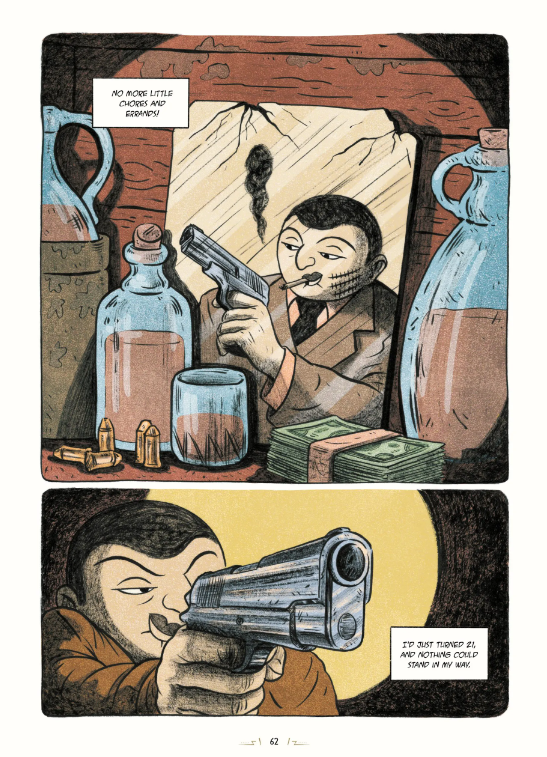
So where is the reality? Who gets the final say? Who controls the narrative? What ultimately is the story of a person’s life? An evil fucking person does evil fucking things in this world, but, when they tell their account, they justify their evil and become the hero of the tale.
Is who we are in the world the story we tell ourselves or the story others tell about us? Perhaps the truth of the individual, like the beauty of art, is in the eyes of the beholder.
SOLRAD is made possible by the generous donations of readers like you. Support our Patreon campaign, or make a tax-deductible donation to our publisher, Fieldmouse Press, today.

Leave a Reply